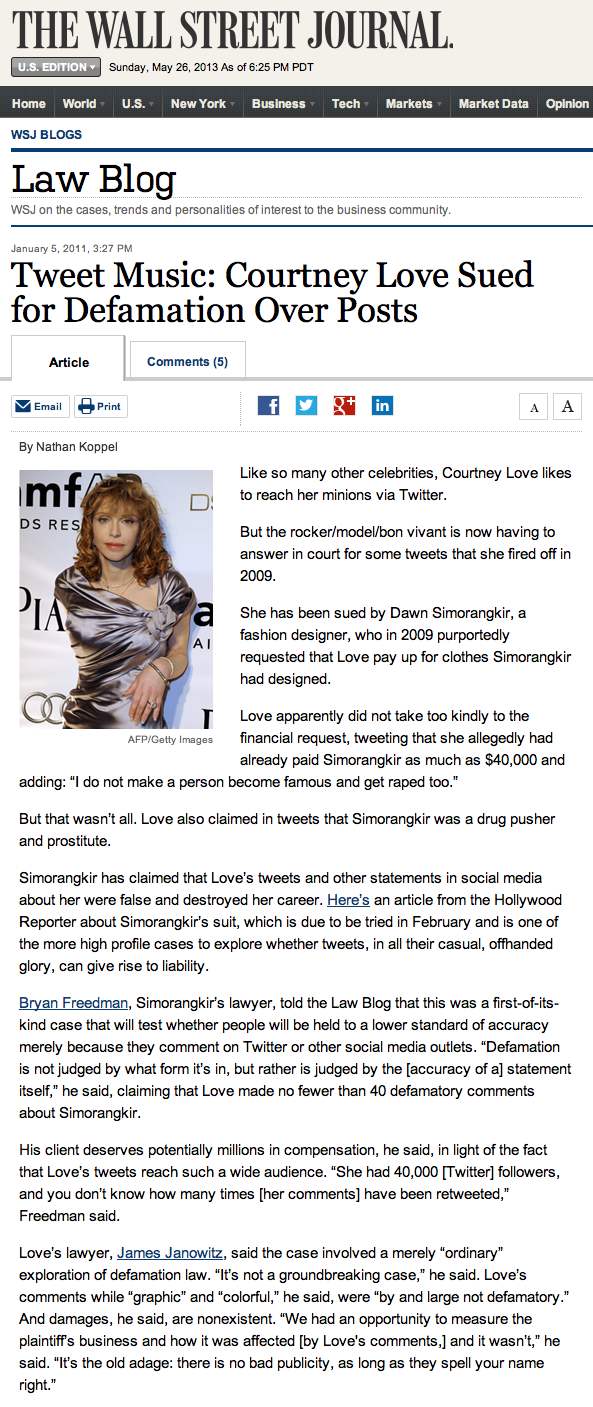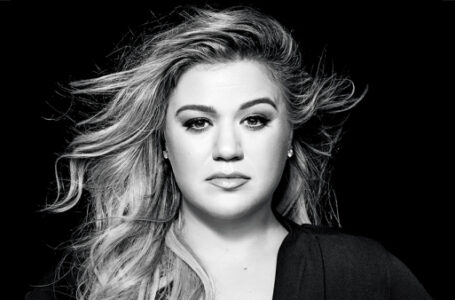Like so many other celebrities, Courtney Love likes to reach her minions via Twitter.
But the rocker/model/bon vivant is now having to answer in court for some tweets that she fired off in 2009.
She has been sued by Dawn Simorangkir, a fashion designer, who in 2009 purportedly requested that Love pay up for clothes Simorangkir had designed.
Love apparently did not take too kindly to the financial request, tweeting that she allegedly had already paid Simorangkir as much as $40,000 and adding: ‘I do not make a person become famous and get raped too.’
But that wasn’t all. Love also claimed in tweets that Simorangkir was a drug pusher and prostitute.
Simorangkir has claimed that Love’s tweets and other statements in social media about her were false and destroyed her career. Here’s an article from the Hollywood Reporter about Simorangkir’s suit, which is due to be tried in February and is one of the more high profile cases to explore whether tweets, in all their casual, offhanded glory, can give rise to liability.
Bryan Freedman, Simorangkir’s lawyer, told the Law Blog that this was a first-of-its-kind case that will test whether people will be held to a lower standard of accuracy merely because they comment on Twitter or other social media outlets. ‘Defamation is not judged by what form it’s in, but rather is judged by the [accuracy of a] statement itself,’ he said, claiming that Love made no fewer than 40 defamatory comments about Simorangkir.
His client deserves potentially millions in compensation, he said, in light of the fact that Love’s tweets reach such a wide audience.
She had 40,000 [Twitter] followers, and you don’t know how many times [her comments] have been retweeted.
Bryan Freedman said.
Love’s lawyer, James Janowitz, said the case involved a merely ‘ordinary’ exploration of defamation law. ‘It’s not a groundbreaking case,’ he said. Love’s comments while ‘graphic’ and ‘colorful,’ he said, were ‘by and large not defamatory.’ And damages, he said, are nonexistent. ‘We had an opportunity to measure the plaintiff’s business and how it was affected [by Love’s comments,] and it wasn’t,’ he said. ‘It’s the old adage: there is no bad publicity, as long as they spell your name right.’





